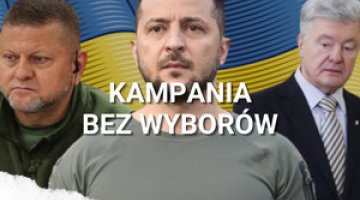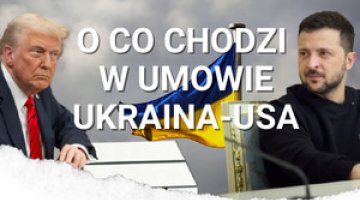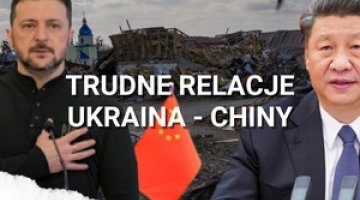Turkey on the Russian military intervention in Crimea
In the Ukrainian-Russian crisis, Turkey has backed Kyiv. It has declared that Ukraine's territorial integrity needed to be preserved, and pledged assistance in stabilising the situation and ensuring the Tatar minority's security. However, Turkey is unlikely to take more decisive actions which might push it into a political confrontation with Russia. Due to concerns over possible retaliation from Moscow, which has strong instruments to pressure Turkey, Ankara will probably act with restraint.
Turkey's actions so far
Since the Russian intervention in Crimea in the last days of February and first days of March, the attitude of Turkey has been that of moderate involvement. On the one hand, Turkey supports Kyiv, but on the other, fears Russia's reaction. It manifested its support through the meeting between the Turkish foreign minister Ahmet Davutoğlu and the new Ukrainian leaders (including acting president Oleksandr Turchynov and prime minister Arseniy Yatsenyuk), held in Kyiv on 1 March. Davutoğlu firmly backed Ukraine's territorial integrity and offered political and economic support to stabilise the situation and ensure peaceful conditions for the "brotherly" Crimean Tatars. Davutoğlu also consulted on the issue with Western officials including John Kerry, Catherine Ashton and Frank-Walter Steinmeier. Nevertheless, the subsequent declarations of the Turkish leadership (made only three days later) were very restrained and demonstrated that Turkey did not want the crisis to mar its relations with Russia.
In the Turkish media, the Russian intervention has been getting less space and attention than internal policy issues (including the corruption scandal). The society's demonstrations of support for the Tatars have been few and small.
The crisis from Ankara's point of view
Ankara sees the Russian intervention as a serious threat to its position in the Black Sea region. Firstly, there is a risk that the crisis might escalate in an uncontrolled manner, directly threatening the security of Turkey, its relations with Russia and its economic interests. Secondly, even if the conflict does not escalate further, the crisis will most probably boost Russia's regional dominance, thus diminishing the importance of Turkey. Thirdly, the Russian intervention consolidates Moscow's practice of undertaking unpunished armed interventions in Turkey's surroundings. Finally, it puts the efficacy of the AKP government's foreign policy to a test before the coming elections.
More broadly, the current crisis has called into question the efficacy of the strategy which Turkey has been pursuing towards the Black Sea region so far. That strategy aims at building a system based on the primacy of two main actors, Russia and Turkey, and on regional co-operation mechanisms intended as checks on Russian expansionism and as measures to stabilise the region. In line with this policy, and - at times against pressure from NATO - Ankara has been advocating the application of the 1936 Montreaux convention which imposes considerable restrictions on movements of military vessels of countries from outside the region. Turkey's reasoning was that the convention would put it in a privileged position and make the Black Sea a de facto Turkish-Russian condominium, while at the same time limiting the volume of traffic in Turkeys straits of Bosporus and Dardanelle. Ankara has also been promoting joint economic and security institutions with membership limited to countries of the region, such as the Organization of the Black Sea Economic Cooperation (BSEC) or the Black Sea Naval Force (BLACKSEAFOR).
Turkey's stance on the war in Georgia was an expression of its Black Sea policy: Ankara showed considerable restraint in commenting on the Russian invasion, did not allow a radical stepping up of US military presence on the Black Sea and then tried, without success, to promote the establishment of a strictly regional organisation, the Caucasus Stability and Co-operation Platform which was expected to stabilise the region. The current crisis demonstrates that Turkey's efforts to make Russia recognise it as an equally important actor in the region have failed.
Relations with Ukraine
Ukraine has never been a particularly important partner for Turkey. That role in the region has been reserved for Russia, perceived by Ankara as a decisively more important actor in the spheres of politics, security and economy, including energy (Turkey's trade exchange with Ukraine was worth US$ 6.2 billion in 2012, compared to around US$ 33 billion of trade exchange with Russia). Ankara's assumption has been that political relations with Kyiv could only be developed at the expense of relations with Moscow. Moreover, political and economic co-operation in recent years has been impeded by the instability in Ukraine, its widespread corruption and the lack of clear interest in building closer relations with Ankara on the part of Kyiv. Therefore, in bilateral relations with Ukraine Turkey has limited itself to courtesy visits (e.g. within the framework of the High-Level Co-operation Council), and promoting business relations and tourism (the two countries mutually abolished visas in 2012). The Crimean Tatars occupy a special place in Ankara's policy towards Ukraine due to their cultural, religious and historical ties with Turkey, accentuated by the neo-Ottoman and pan-Turkish traits in Turkey's state ideology. Turkey supported the repatriation of Tatars expulsed to Central Asia and has been providing development aid to Crimea (US$ 25 million since 1991). In those foreign policy measures, Turkey's state ideology played a greater role than the expectations of the difficult-to-measure and almost completely assimilated Tatar diaspora, whose significance on Turkey's political scene is marginal.
Concerns about Russia
Russia is one of Turkey's most important economic partners and one of its main rivals on the international stage. While there are political differences between the two countries concerning the South Caucasus, the Middle East and security issues (e.g. the NATO missile shield), the scale of economic co-operation and the mutual benefits it has been generating have so far inclined the two capitals to mitigate any political disputes they might have.
Turkey's exports to Russia were worth US$ 6.6 billion, and its imports from the Russian Federation – US$ 26.6 billion in 2012. Russia is a key energy supplier to Turkey, accounting for nearly 60% of its gas imports and around 30% of petroleum product imports). It is also a major foreign market for Turkish construction companies and a major source of revenue from tourism (3 to 4 million Russian tourists visit Turkey every year); moreover, Russia's Rosatom is building Turkey's first nuclear power plant. In addition, Russia has powerful instruments to pressure Ankara in the domain of security, e.g. in connection with the Syrian conflict. Those factors will be pushing Turkey to stick to its policy of mitigating political disputes with Russia.
Future outlook
Irrespective of the pro-Ukrainian declarations made by minister Davutoğlu, one should not expect Ankara to impose sanctions on Russia. Turkey is nevertheless likely to support Kyiv diplomatically and economically, and provide humanitarian assistance to the Crimean Tatars. A possible decision by the West to step up military presence on the Black Sea would presumably be perceived in Turkey as a new threat to its interests. Similarly, if the West's response to the crisis proved weak and ineffective, that would consolidate Turkey's current stance of avoiding a confrontation with Russia.





